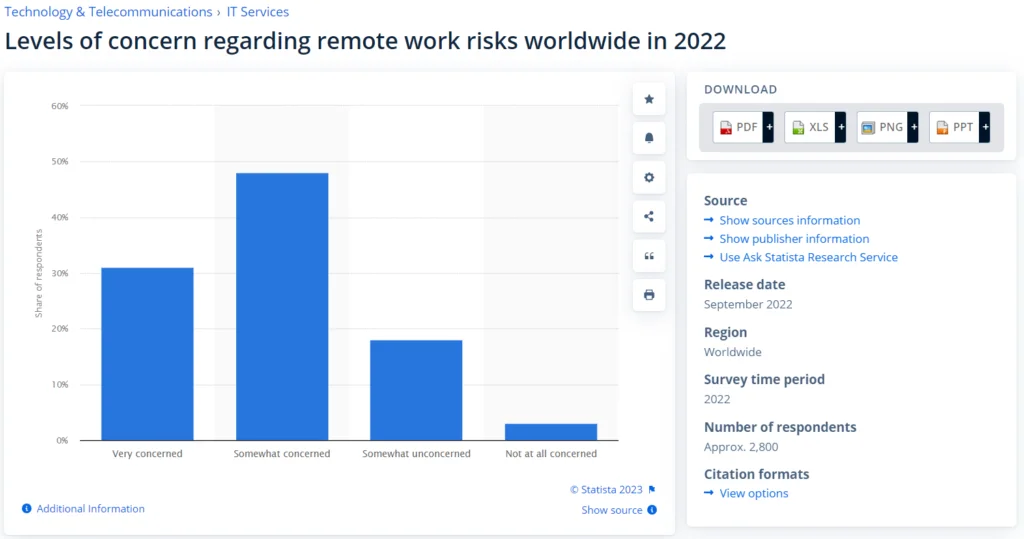
As we approach the end of 2023, it’s essential to reflect on the IT challenges that have shaped the the daily operations of small and medium-sized enterprises (SMEs) throughout the year. These challenges have not only tested the resilience and adaptability of these businesses but have also underscored the critical role of IT in contemporary business success.
While technology offers SMEs extraordinary opportunities for innovation and market expansion, it also poses complex challenges. These include cyber security threats and integrating new technologies into traditional business frameworks. Businesses, especially SMEs must strategically balance technological adoption with risk management, often under tight resource constraints.
In this article, we will look at the main IT challenges that small and medium-sized enterprises (SMEs) have faced in 2023 and provide insights into how these challenges can be turned into opportunities for growth, innovation, and competitive advantage.
SMEs have faced a variety of IT challenges in 2023, with cyber security being a particularly significant concern. Phishing, supply-chain, and ransomware attacks have become more common. Ransomware attacks frequently use double extortion techniques, which result in data theft as well as data encryption. Such attacks can have devastating financial consequences, especially for SMEs that frequently lack technical expertise and resources.
However, these challenges can be reframed as opportunities for innovation and competitive advantage. By investing in cyber security, SMEs can demonstrate to customers and partners their commitment to protecting sensitive data, potentially becoming more attractive to do business with. Here are some ways in which cyber security challenges can be turned into opportunities:
Digital transformation, a term that encapsulates the integration of digital technology into all areas of a business, has been a significant challenge for SMEs in 2023. It’s a process that can revolutionise how SMEs operate and deliver value to customers, promising increased productivity, efficiency, and competitiveness. However, SMEs have faced several challenges on this front.
One of the most pronounced barriers has been the digital skills gap. As technology advances rapidly, SMEs often find themselves struggling to keep up due to a lack of qualified and skilled workers. The competitive market for digital talent means SMEs are vying against tech giants for a limited pool of experts, which can delay digital transformation efforts.
Another challenge is the absence of an agile mindset, which is critical in the fast-paced ever-changing digital world. Many SMEs are rooted in traditional practices and may resist the changes that digital transformation requires. To overcome this, SMEs need to foster a culture of adaptability, experimentation, and continuous learning, encouraging staff to embrace new technologies and processes.
While the challenges of digital transformation are significant, they present SMEs with a unique opportunity to reinvent themselves, innovate, and secure a competitive edge in the market. By strategically overcoming these obstacles, SMEs can turn potential weaknesses into strengths.
The process of integrating new technology with existing systems can lead to significant operational disruptions. SMEs face the challenge of ensuring that their existing infrastructure can communicate with new applications and tools. This often requires updates or replacements of legacy systems, which can be costly and time-consuming.
While automation can greatly improve efficiency, implementing it can disrupt established workflows. Employees may need to adapt to new processes, which can temporarily reduce productivity. SMEs must manage the changeover carefully, providing training and support to ensure a smooth transition.
In 2023, cloud integration has presented SMEs with a complex set of challenges, but also significant opportunities for growth and innovation. The rapid development of cloud computing over the past decade and a half has made services like storage, compute, and networking more accessible. However, the integration of these cloud services into SME business operations has come with difficulties.
The migration and integration of legacy systems into the cloud have been a substantial challenge for SMEs. These systems, often crucial to the company’s operation, are not always compatible with modern cloud software, and upgrading them can be costly and time-consuming. Managing multi-cloud environments also presents challenges in terms of maintaining consistency in security, performance, and cost across different platforms. Furthermore, cost optimisation in cloud services has been a major consideration. Companies have been surprised by unexpected expenses due to variable usage, data storage, and transfer costs, hidden fees, and complex contract terms.
Despite these challenges, SMEs can turn cloud integration challenges into growth opportunities:
Cloud computing can be a critical component for SMEs to stay agile and competitive in their markets, helping them improve business performance and seize growth opportunities. With the right cloud strategy, SMEs can streamline their operations and respond more quickly to market change.
Remote work, a trend that has become increasingly prevalent for SMEs, presents both challenges and opportunities. The security risks associated with remote work are significant. These include cyber threats like phishing, data breaches, and malware.
Remote employees often use personal devices to access corporate assets, which may lack adequate security measures, making them prone to cyber threats. This behaviour increases the number of unsecured endpoints, making the company’s network more vulnerable to hacking. The management of security within a remote workforce is difficult due to limited visibility and control over remote workers’ devices and security configurations. This oversight gap may make it more difficult for SMEs to promptly detect and respond to cyber threats.

According to a report from the Statista Research Department dated July 7, 2023, a significant 79% of people around the globe reported concerns about the risks associated with remote work in 2022, while a mere 3% indicated no concern whatsoever.
However, these challenges can be transformed into opportunities by implementing robust cyber security measures, performing regular security assessments, and using remote monitoring software. Regular training and awareness programs for remote employees, coupled with the implementation of a zero-trust framework and multi-factor authentication, can mitigate these risks and secure the remote workforce. These measures not only protect sensitive data but also promote a culture of security awareness within the organisation.
Regulatory compliance has become increasingly demanding, with a growing number of rules governing data protection, privacy, and industry-specific regulations. SMEs often lack the resources to fully understand and implement these regulations, which can change frequently and differ by region. Compliance is not just a legal necessity but also a trust signal to customers, so it’s crucial for SMEs to establish compliance protocols, often requiring the support of legal and IT experts.
Artificial Intelligence (AI) and Machine Learning (ML) have transformed business operations, offering numerous benefits such as increased employee efficiency, innovation, and cost reduction. The most traction in AI and ML usage has been seen in intelligent search, document processing, and customer engagement. These tools have helped companies work faster and smarter, automating decision processes and making manual tasks less labour-intensive. However, the implementation of AI and ML is not without its challenges. The key obstacles include a shortage of skilled talent, algorithm/model failures, and a lack of technological infrastructure to support AI and ML initiatives.
As 2023 draws to a close, SMEs have encountered a diverse array of IT challenges that have tested their resilience and demanded a proactive stance on technology integration and cyber security. Reflecting on these experiences, it’s clear that the path forward requires a blend of strategic planning, investment in cutting-edge solutions, and a commitment to continuous learning and adaptation.
At Labyrinth Technology, we understand the intricate maze of IT challenges you face. Let us guide you through this labyrinth with our expertise. Contact us for a comprehensive IT assessment and tailored solutions that empower your business. Together, we will transform these challenges into stepping stones for success.
Empowering London Businesses with Efficient IT Solutions to Save Time and Stay Ahead of the Competition.